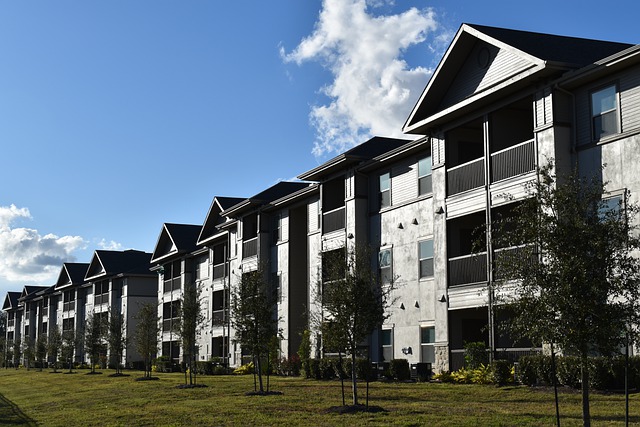Can Deed Restrictions Include Rather Than Exclude?

U.S. home prices have outpaced U.S. employees’ wages. This creates a number of problems in real estate. For one, it shuts a lot of people out of the market. Most of today’s renters simply have no choice but to keep on renting. And whether they rent or own, many employees find themselves in long-distance commutes, because they cannot afford to live anywhere near their workplaces.
Landlords are increasing rents sharply these days. Consider Phoenix. Rents in all Phoenix suburbs have risen “by the double-digit percentages since the pandemic,” Zumper reports. Meanwhile, many residential areas throughout the United States have single-family-only zoning. Building affordable, multi-unit homes on a property is not allowed in those areas.
Every day, stock market commentators say we dodged the financial bullet when we powered through the pandemic by Zoom, Teams, and DocuSign. Yet many still struggle to afford homes. How can the affordability problem be solved?
“Upzoning”: Mid-Density Housing Helps Fill Gaps

Townhouses, condos, cottage communities, and semi-detached homes put roofs over heads for less money, and with a lower environmental impact. One threshold question is whether and where they’re allowed. The word “upzoning” has been coined to mean rezoning to allow higher housing densities or mixed purposes. Upzoning advocates work in the suburbs to point to the benefits and promote mid-density housing.
In many places, their first hurdle comes in the form of single-family-only zoning rules. In California, an upzoning bill collapsed under suburban homeowners’ opposition, Kalena Thomhave reported for Spotlight on Poverty.
In other areas, policy is changing to make space for mid-priced, modestly sized housing. Numerous counties are shifting their policies to allow accessory units or “in-law cottages” on single-family properties. It’s a growing trend, and we can now look up accessory dwelling rules by city at AccessoryDwellings.org.
Oregon has retired single-family-only zoning in all but the smallest towns, and other states are considering similar moves. Private developers and real estate agents usually support such shifts. Builders, too, welcome multi-unit property allowances because they’re good for business.
Despite its allowance for the freedom to build, Oregon still suffers from a housing shortage. Prices are up 13% year-over-year. An average Oregon home is valued at more than $400K. Oregon’s affordability problem has clearly not been solved. So a new bill, SB 458, lets local governments allow the subdividing of current properties, and allows several owners, instead of just one, to buy multi-unit properties.
Does Rezoning or “Upzoning” Override a Deed Restriction?
Some properties have deed restrictions barring their owners from subdividing these lots into multi-unit housing. These owners might wonder which controls — zoning, which is public regulation (or deregulation), or deed restrictions, which are forms of private regulation. If a property owner’s deed restriction limits that land to one residential unit, does upzoning override the deed restriction? And what happens to the property deed restriction if the owners subdivide their property in accordance with zoning rules that end single-family-only zoning?
Austin, Texas answers this question directly. It states that municipal zoning does not override a private property’s deed restriction. Thus, city rezoning “should not affect the enforceability of deed restrictions,” according to the city. If a home has an enforceable deed restriction, it is a privately constructed agreement that “should” continue to be enforceable.
Some commentators have argued for protective ordinances bolstering the property rights of homeowners who don’t want to lose single-family-only zoning. These ordinances set out to buffer single-family homes and fend off density in the suburbs.
California has attempted to override residential deed restrictions. Where there’s a conflict between a city and a property owner, real estate attorneys may suggest taking the matter to court. A court could to enforce the deed restriction against local upzoning policies. Yet a court could go the other way, declining to enforce a restrictive covenant if it finds that the deed restriction contravenes public policy.
The tension between residents who want restrictions and those who find them unreasonably exclusive will continue, especially when affordable homes are scarce.
Renting Vs. Owning
Some multi-unit trends could reinforce the rental track rather than providing an off-ramp. Consider a private rental development at Harwich, Cape Cod, under the Massachusetts law called Chapter 40B. The intent of Chapter 40B is to achieve an affordable housing goal of 10+ percent in every city and town in Massachusetts. Chapter 40B clears a pathway for multi-unit construction, if more than a fifth of the units will remain affordable homes for renters or owners. Homes are deed-restricted with rules covering mortgages, capital improvements, and resale.
Inclusive deed restrictions can facilitate inclusion, bringing more people near the places they want to work, shop, and send their kids to school. On the other hand, to the extent that it is used to advance rental projects, arguably it’s not necessarily advancing the financial independence of residents. Renting can limit residents’ opportunities to build wealth. (See more about homeowning and wealth building.)
On the Rise: Inclusive Deed Restrictions
This is why some cities have been trying to find creative ways to help residents put down roots, and contribute to the life of their cities. The community land trust is one such option. Once a land trust owns property, the homes that sit on that land are deed-restricted to keep them from being sold or resold at market value. Like other private deed restrictions, this one runs with the land, helping residents to build generational wealth.
In a way, the land trust offers a hybrid between ownership and a renewable lease. The homebuyer gets a mortgage and an interest in the specific property on the trust’s land. The buyer can later be a seller, but only by selling the house for significantly below the going prices. This arrangement ensures that the trust continues to receive funds that allow its affordability mission to continue.
Safeguarding Community Assets for the Future
The challenge of making housing affordable and inclusive is continually prompting new forms of cooperation in real estate. Groups such as “Neighbors for More Neighbors” and “Portland YIMBYs” (yes, in my backyard) have succeeded in getting exclusive zoning rules relaxed.
And there’s more to inclusion than building the structures, says one land trust group that works with Fannie Mae to finance affordable ownership. “We must preserve affordability,” Grounded Solutions insists, “by stewarding and safeguarding public investments in community assets for generations to come.”
Supporting References
Tim Gruver for The Center Square: Oregon Bill Builds on State’s Ongoing Quest to ‘Upzone’ Neighborhoods (May 18, 2021).
Kalena Thomhave for Spotlight on Poverty: Cities, States Use “Upzoning” to Spur Affordable Housing Growth (Sep. 4, 2019).
The City of Austin Texas: Deed Restrictions & City Zoning Regulations – Private Restrictive Covenants, City Zoning Laws, and City Permit Applications (Nov. 14, 2019).
ReasonTV: Density or Sprawl? How To Solve the Urban Housing Crisis (Feb. 28, 2020).
Doug Fraser for Cape Cod Times: Three-Story Apartment Buildings Planned Near Harwich Center [Would Boost Town’s Affordable Housing Stock] (May 27, 2021).
Strong Towns: The Strong Towns Strength Test (June 21, 2016).
Massachusetts: Chapter 40 B Planning and Information.
Citizens’ Housing & Planning Association (Massachusetts): Chapter 40B Affordable Housing – Frequently Asked Questions (PDF dated 2018).
Photo credits: ArtisticOperations, via Pixabay, and Max Vakhtbovych, via Pexels.
